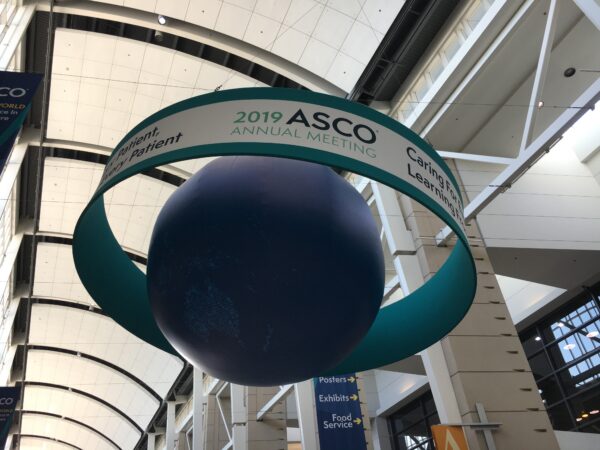
One of the questions that arose from Bristol-Myers Squibb’s planned acquisition of Celgene was what would happen to the partnership between the latter and rising Chinese biotech firm BeiGene – in particular BeiGene’s investigational PD-1 inhibitor, tislelizumab. However, despite some continued uncertainty, a BeiGene executive said the company is well-prepared.
Speaking at the American Society of Clinical Oncology’s 2019 annual meeting in Chicago, BeiGene chief adviser Eric Hedrick said that while it is not yet official, the need for Bristol-Myers Squibb to divest at least one PD-1 checkpoint inhibitor for its $74 billion acquisition of Celgene will likely mean it will jettison tislelizumab rather than its flagship product, Opdivo (nivolumab). In January, when the deal was announced, analysts wrote that such an action by BMS would weaken Beijing-based BeiGene’s ability to compete with established PD-1 inhibitors in markets outside of China.

With the Rise of AI, What IP Disputes in Healthcare Are Likely to Emerge?
Munck Wilson Mandala Partner Greg Howison shared his perspective on some of the legal ramifications around AI, IP, connected devices and the data they generate, in response to emailed questions.
“I think it’s fair to say there are other companies out there without a PD-1 inhibitor that might want a PD-1 inhibitor, for the [drug] itself and for the combination-type work,” Hedrick said in an interview at the ASCO meeting. He added that the company expects to get global rights to tislelizumab back.
The company has not had to do much in the way of preparation for the potential loss of the Celgene partnership on tislelizumab, given that the Summit, New Jersey-based biotech had only been funding a small subset of the studies involving it. According to BeiGene’s latest quarterly earnings report, filed last month, the company received $18,174 in research and development reimbursement revenue from Celgene during the first three months of this year, plus $2,238 in research and development services revenue.
China nevertheless remains a significant part of the projected market for the drug, Hedrick said, noting that the company expects tislelizumab to win Chinese regulatory approval for Hodgkin’s lymphoma this year. Opdivo and its nearest competitor, Merck & Co.’s PD-1 inhibitor Keytruda (pembrolizumab), already have Food and Drug Administration approval for the blood cancer. Beyond that, the company is focused on cancers prevalent in Asia, such as cancers of the liver, stomach and esophagus. “In the market, the GI malignancies are one place where it’s not oversaturated with checkpoint inhibitors,” Hedrick said.
At ASCO, the company is presenting outlines of Phase III trials in progress with tislelizumab in esophageal cancer and gastroesophageal junction cancer, as well as lung cancer. Those studies all have sites in Asia and Europe. Data are also being presented on the drug in Chinese patients with lung and nasopharyngeal cancers.
The company’s other lead asset is zanubrutinib, a BTK inhibitor that is in a Phase III head-to-head study compared with AbbVie’s approved BTK inhibitor, Imbruvica (ibrutinib), in patients with chronic lymphocytic leukemia.
Photo: Alaric DeArment, MedCity News














